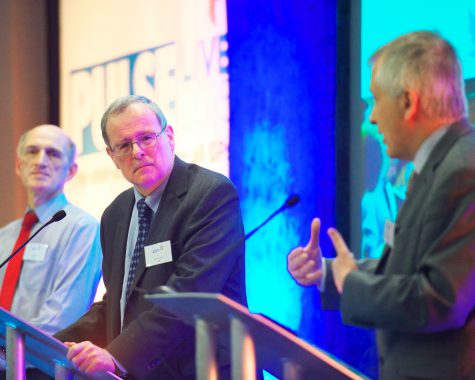Cancer diagnosis drive ‘putting practices under too much pressure’

The Government’s drive to get more patients diagnosed early with cancer is putting undue pressure on practices and may lead to increased harm to patients as a result of stress and incidental scan findings, GPs agreed at Pulse Live session this morning.
In a debate session on the cancer diagnosis drive, experts welcomed the move towards improving early diagnosis in order to improve cancer outcomes and raise UK cancer survival rates to the European average, but warned the Government’s strategy will lead to over-investigation.
A show of hands at the end of the discussion revealed the vast majority of GPs agreed the strategy is ‘putting pressure on practices and potentially harming patients’.
The Government has been pushing cancer diagnosis through a number of initiatives, including the ‘Be Clear on Cancer’ series of awareness campaigns.
NHS England has now launched a new cancer strategy, with a major emphasis on early diagnosis with pilots on self-referral for diagnostic tests, lower referral thresholds for GPs and the introduction of dedicated cancer diagnostic centres for patients to undergo several tests in one go.
The move coincided with planned NICE new guidance on suspected cancer that will see cancer referrals soar as a result of lowering the risk threshold for referral, from a predicted risk of around 5% to 3%.
Speaking at the Pulse Live debate, Dr Richard Roope, clinical lead on cancer at the RCGP and a GP in Fareham, Hampshire, defended the strategies, arguing that the push to diagnose patients earlier will be essential to get the UK’s cancer survival on a par with the European average.
Dr Roope said lowering the threshold for GPs to refer patients for suspected cancer – in line with NICE proposals – would be key.
He said: ‘GPs are gatekeepers and it is important to maintain that role, but we need to make the gate wider.’
Dr Roope added: ‘If we can improve our early diagnosis it is better medicine, it’s obviously better for patients, with better outcomes if we achieve it, it will result in fewer repeat consultations… Early diagnosis is the key to cancer diagnosis and is actually one of the things we need to do to reduce the burden on us.’
However, Dr Nick Summerton, a GP in East Yorkshire and former NICE advisor, said that while the strategy’s objectives were laudable, the ‘approach is flawed’ and risked increasing psychological as well as physical harm, through delays, unnecessary tests and incidental findings.
Dr Summerton called for better training of GPs in cancer diagnostics and longer consultations for them to assess patients properly.
He said: ‘We need to spend more time with patients and less in technology… we know from the evidence the longer you have in the consultation the more likely you are to tease out the issues, bring in the patient’s values, apply the risk assessments properly.’
Pulse July survey
Take our July 2025 survey to potentially win £1.000 worth of tokens

Visit Pulse Reference for details on 140 symptoms, including easily searchable symptoms and categories, offering you a free platform to check symptoms and receive potential diagnoses during consultations.










